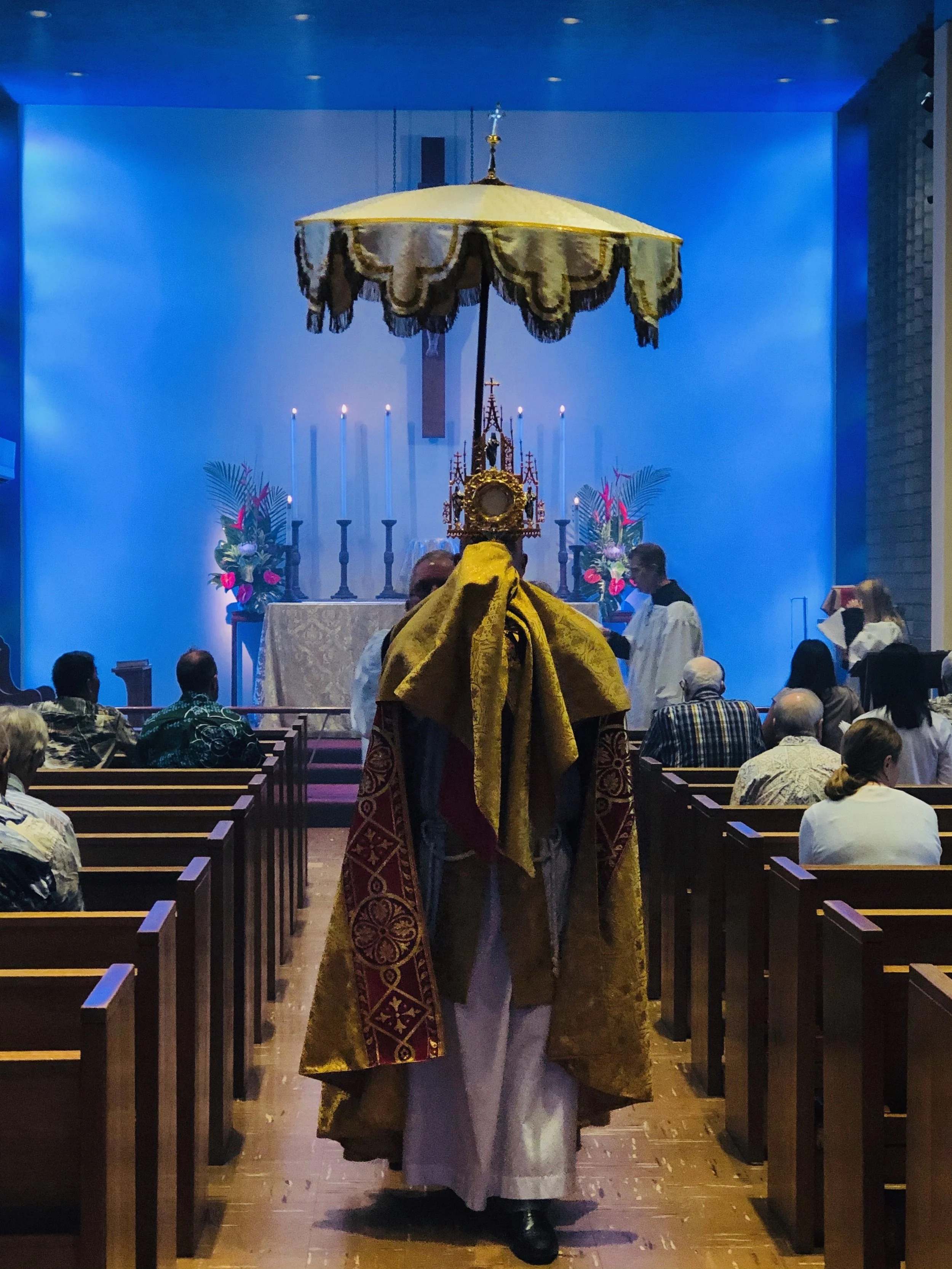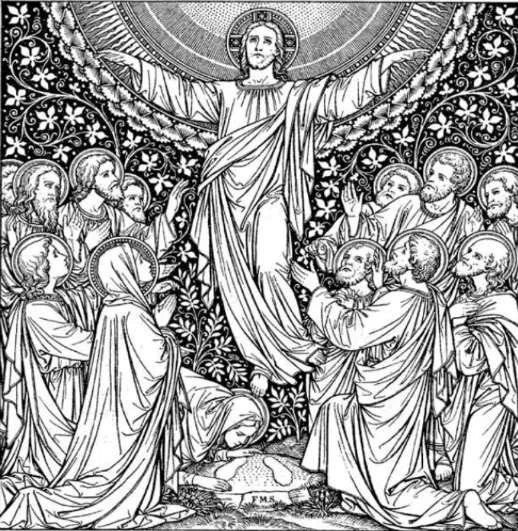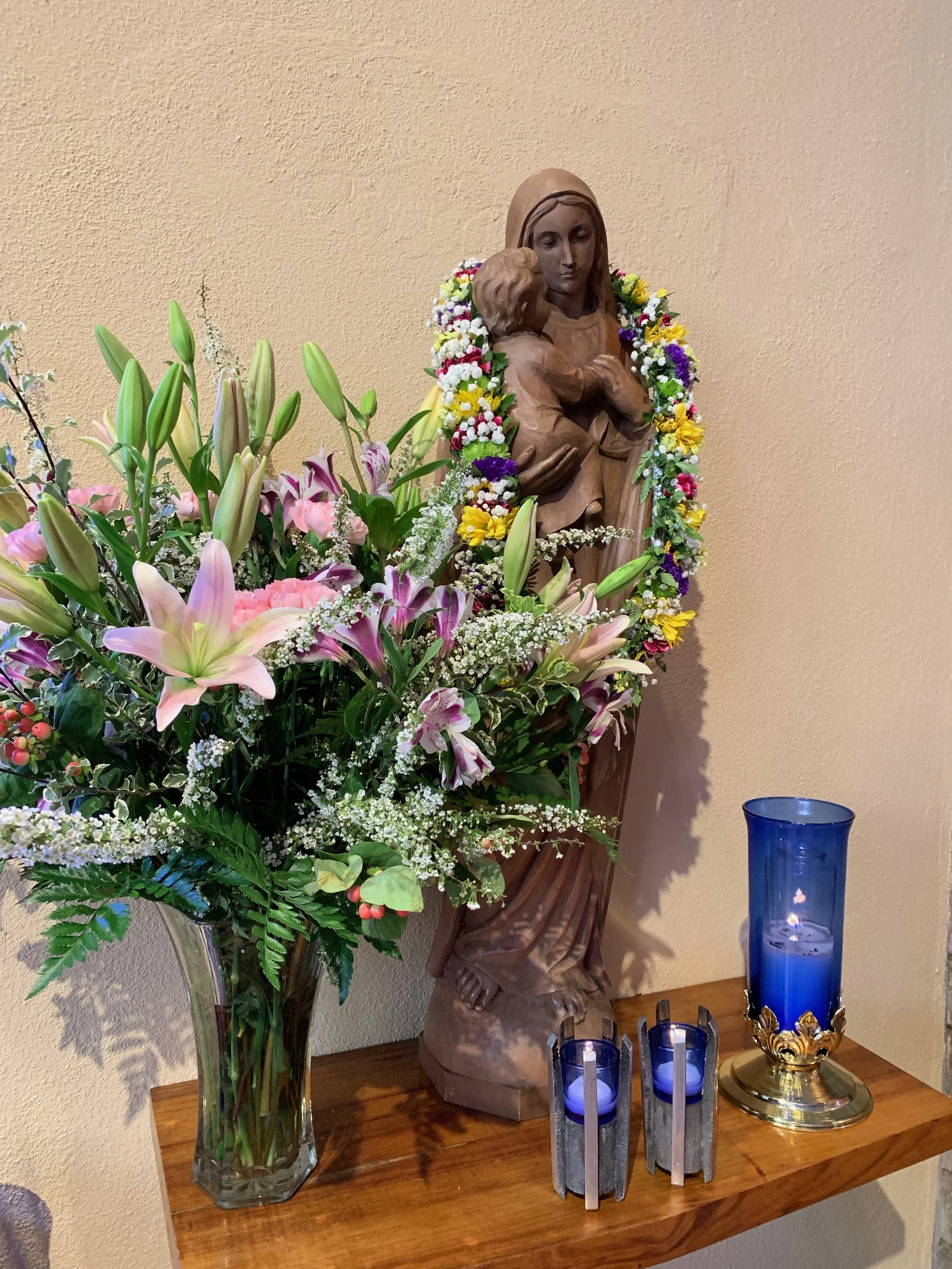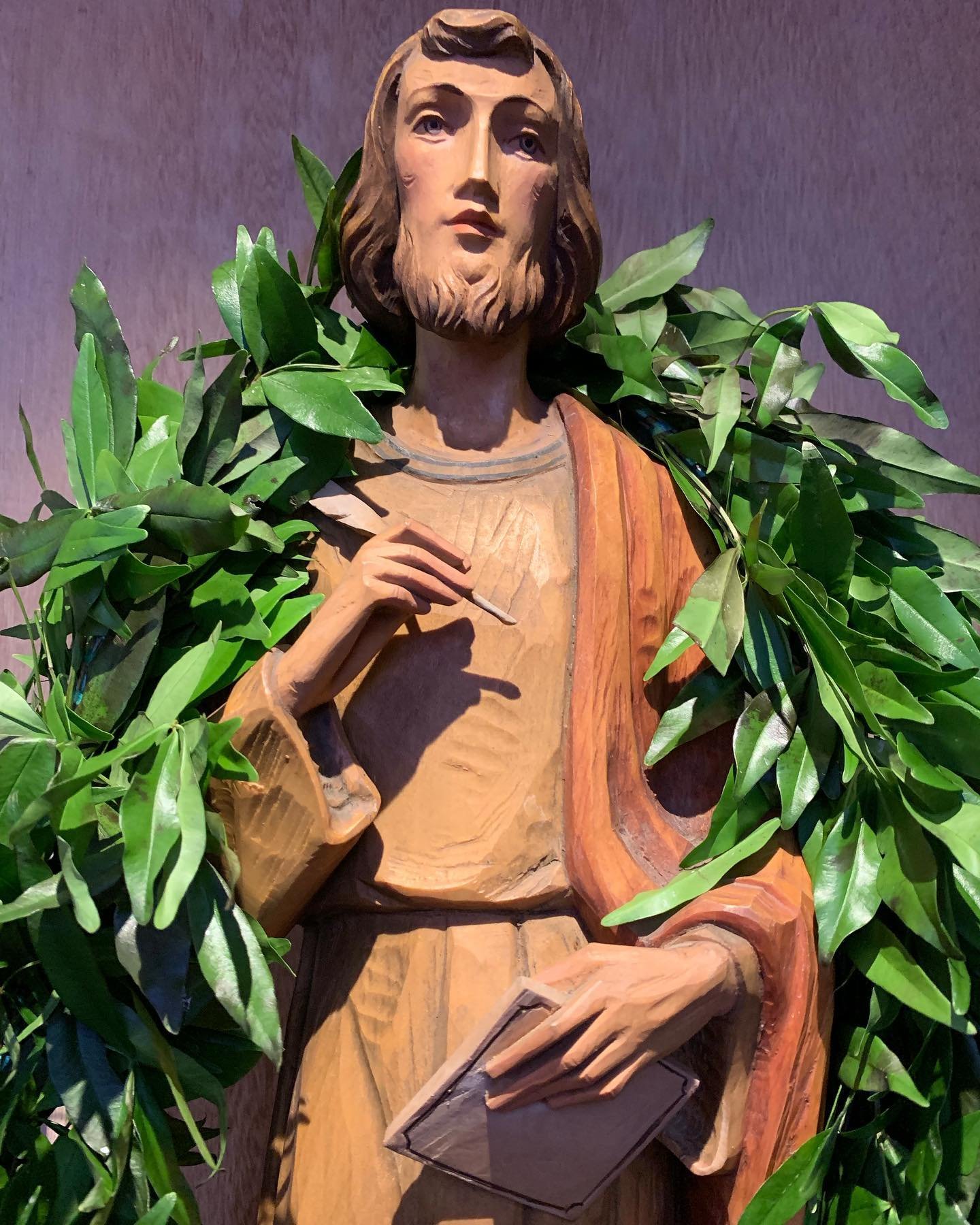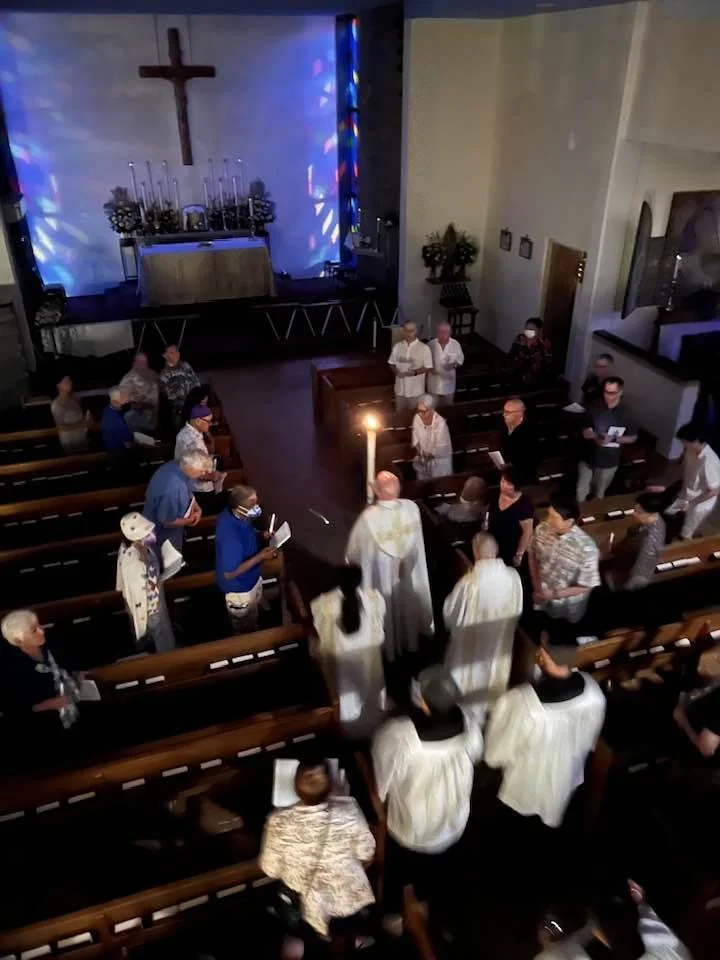From the Intern: Broken and Blessed
/Alison Donohue is our current intern at St. Mark's, and on All Saints' Sunday she was the preacher for the morning masses. The Gospel text for the day was the Beatitudes from the Gospel of St. Matthew.
In the mid twentieth century, the Swiss theologian Hans Urs von Balthasar celebrated his first mass as a priest and preached on the theme of the Eucharist. He saw the Eucharist as theology and spirituality — bread broken for the world. He believed his own life has been touched by God in the same way, as if God had said to him: “I blessed you and then I broke you. And I broke you so that I could give you.”[1]
Now, we could be forgiven for bristling at the assertion that God in any way would intentionally “break” us. Life seems to be perfectly good at doing that to people without God having to lend a hand. But God has a way of breaking us open, of summoning us outside of ourselves, of inviting us to stand on holy ground where we, blessedly, are not in charge. von Balthasar, and the Beatitudes before him, speak of a unique kind of blessing, of a way of being blessed that may not be the kind to which we ourselves have become accustomed.
A brief bit of etymology is in order.
In ancient Greek, the word we translate as blessed is makarios. Like most words, its meaning evolved over the centuries. Initially, makarios referred to the gods, who were elsewhere, away from earthly cares and concerns, living in celestial eternity beyond even the grasp of mortality. They were to be revered and admired, even envied. To be “blessed” was to be one of these lucky beings — in a different sphere of existence entirely.
Intern Alison Donahue
Over time, makarios took on additional meaning when it came to include the deceased. Being dead was not considered entombment; it was considered freedom. And so all of these mortals who were liberated from their quotidian lives of struggle and suffering were considered the blessed ones.
Finally, in Greek culture, makarios came to refer to the elite, the upper crust of society, the wealthy people. As in all cultures, the ultra-rich appear to the rest of us to be above human worries. Surely, Larry Ellison, drifting around the island chain on a yacht larger than most houses, is probably not bogged down with the same anxieties I am. The Greeks called these lucky souls “makarios” as well — blessed.
When the Greeks translated the Hebrew Scriptures into their own language, they used this same word to describe the advantages that accrued to those living a righteous life. If you were a good person, you were then blessed with a lovely spouse, a happy, large family, abundant crops, honor, riches, beauty and good health. Like every other meaning of the term, it referred to the lucky ones, the ones whose riches were abundant and whose anxieties were few. We envy these people. They live in a different realm, operate on a different wavelength, are different from us, and eminently enviable.[2]
Listeners in Jesus’ time, then, would have been alert to his usage of makarios in the Beatitudes we just heard, and surprised by it. It is likely that when we look more closely at Jesus’ words, we too are surprised. “Blessed are the poor in spirit, blessed are the meek, blessed are those who suffer because of me.” Jesus is intentionally inverting his followers’ understanding of what it means to be “blessed,” and by doing so he is teaching us two fundamental truths about the Christian life.
First, Jesus inverts our usual understanding of what it means to be blessed. Most of us can easily identify with the way the Greeks used the word blessed because we use it too. We are taught to see our lives as a trajectory of construction: we build careers, we build families and reputations and friendships. And the human ego can easily become addicted to these things, and they become the only reason for being. More is always better. And our language of “being blessed” usually accumulates around these very things. We are “blessed” with children and grandchildren. We are “blessed” with a comfortable lifestyle, we are “blessed” with a booming business. Athletes will speak of being “blessed” with athletic gifts, with awards and with victories. In many ways, we have not changed all that much from the Greeks.
But the Christian journey has never emphasized those things. Instead, the Christian journey is one of softening, of breaking open, of kindness, of letting go. Of being meek, of being peacemakers. It’s why you don’t need a college degree to do it — opportunities to practice it happen all the time, every day. It isn’t a journey that builds up the ego; instead, it slowly breaks it open. And until you’re on it — and sometimes even then — it doesn’t look like at all like what the world considers a blessing. It may even resemble what we’ve been taught to view as failure.
Often we are ready to really embark on the Christian journey only when the journey of construction has collapsed. When something we’ve worked tirelessly for falls apart at our feet: a marriage ends, a business fails, a career hits a dead end. Or when an illness or a tragedy forces makes us see things differently. When we feel a bit broken, and in that brokenness realize how dependent we are on the kindness of other people, everything looks different.
And second, whereas the journey of construction has clear markers and goals and milestones, the Christian journey can seem less clear, more nebulous. We are not always sure what to aim for. We usually aren’t in control. The Beatitudes function for us as our guides and map, telling us where to stand, what to do, how to be. Hunger and thirst for what is good and just. Purify your heart. Follow God, even when it means you will suffer for it. In all things, be merciful. The radical simplicity of the Beatitudes invites us, “blessed” ourselves, and like the Greek makarios, to live on another plane, in another realm, even if just for a few moments. I am sure I am not the only one who has discovered, to my great surprise, that volunteering at a camp for homeless kids or at a soup kitchen, or doing what I know I am called to do even if it costs me, places my feet somewhere new, somewhere where I am grateful, and motivated, and no longer attached to the opinions of others or the comforts with which I surround myself. I’ve discovered that sometimes the beauty of the liturgy is enough to silence my many concerns and bring God close, and within those moments I am without envy for the house-sized yachts and the gourmet kitchens and the private chartered travel. I am so happy to be right where I am, on the very ground I initially did not want to stand. I am in a different realm. I am eminently blessed.
Indeed, there is no greater blessing than to be Eucharist in the world. To be blessed, to be broken open, to be gift for others. This is the journey of the saints, the Christian journey, our journey. In the end, the only one worth traveling. Amen.
Alison Donohue, Intern
[1] Steck, Christopher. The Ethical Thought of Hans Urs von Balthasar. New York: Crossroad, 2001. Print.
[2] Stoffragen, Brian. “The History of the word Makarios.” Exegetical Notes at Crossmark Christian Resources. Web. 28 October 2017.

